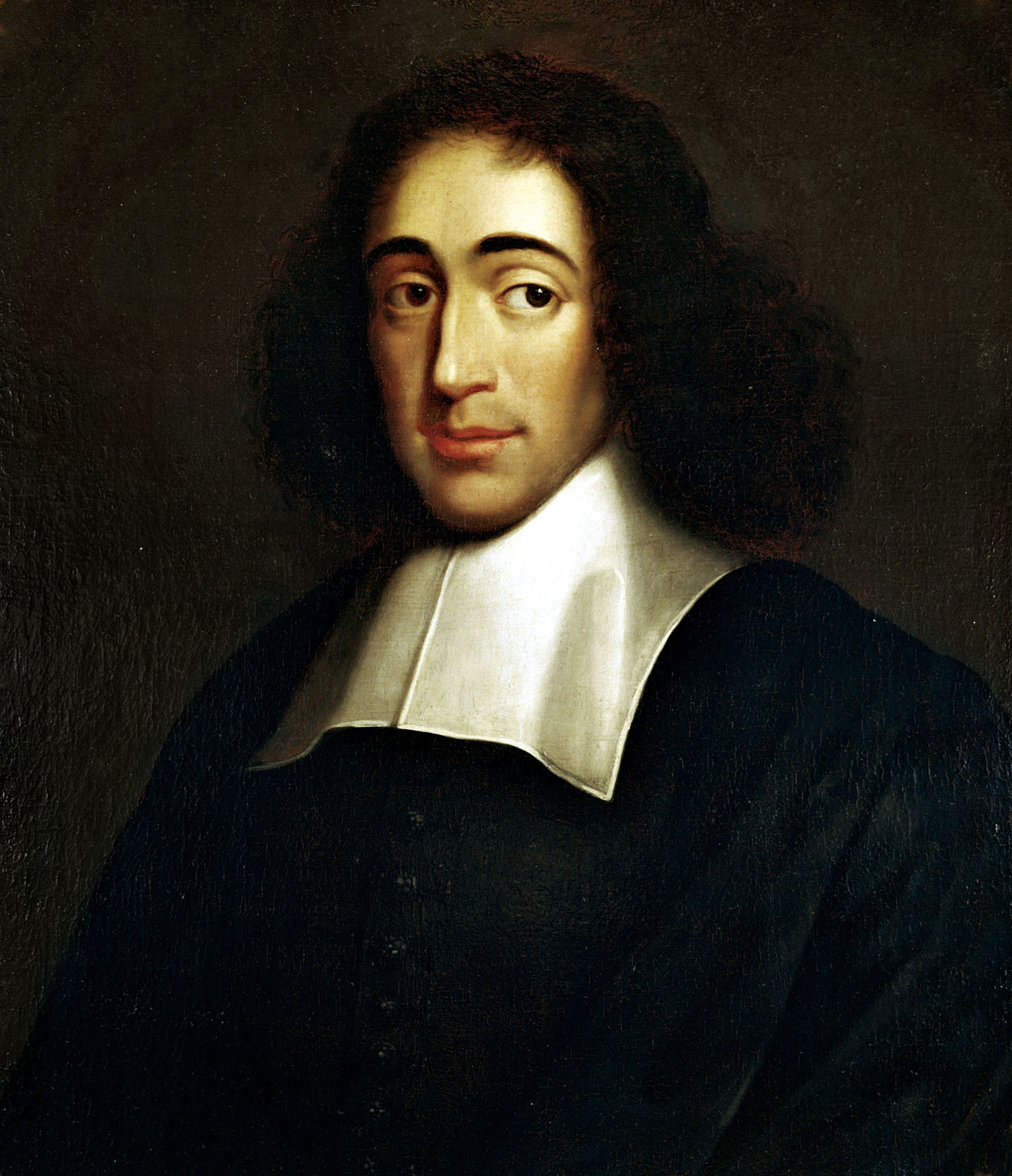Baruch Spinoza nejznámější citáty
Baruch Spinoza: Citáty o moudrosti
Baruch Spinoza citáty a výroky
„Každá situace má smysl, jen ho najít.“
Zdroj: [Berková, Alexandra, Knížka s červeným obalem, Práce, Praha, 1988, 53, druhé, 24–069–88]
„Každý má tolik práva, kolik má moci.“
TANTUM IURIS HABET UNUSQUISQUE, QUANTUM POTENTIA VALET
„Nikdo až dosud nezjistil, co tělo může.“
Zdroj: [Vergely, Bertrand, Velké filosofické otázky, Levné knihy KMa, Praha, 2009, 978-80-7309-636-6, 14, Spinozova Etika]
Baruch Spinoza: Citáty anglicky
I, 3
Variant translation: The things which … are esteemed as the greatest good of all … can be reduced to these three headings, to wit : Riches, Fame, and Pleasure. With these three the mind is so engrossed that it cannot scarcely think of any other good.
On the Improvement of the Understanding (1662)
Letter to Hugo Boxel (October 1674) The Chief Works of Benedict de Spinoza (1891) Tr. R. H. M. Elwes, Vol. 2, Letter 58 (54).
Novalis, as quoted in Novalis (1829) by Thomas Carlyle: "Spinoza is a God-intoxicated man (Gott-trunkenet Mensch)."
Voltaire's poem, as quoted in António Damásio's Looking for Spinoza: Joy, Sorrow, and the Feeling Brain (Orlando, FL: Harcourt, 2003)
S - Z
Friedrich Wilhelm Schelling, On the History of Modern Philosophy (1833) [Translated from the German by Andrew Bowie]
S - Z
Friedrich Wilhelm Schelling, On the History of Modern Philosophy (1833) [Translated from the German by Andrew Bowie]
S - Z
Karl Marx, in his letter to Ferdinand Lassalle, 31 May 1858 [original in German]
M - R
Friedrich Engels, in his The Dialectics of Nature
A - F
Ralph Waldo Emerson, in his journal entry
A - F
Ralph Waldo Emerson, in his lecture entitled “Essential Principles of Religion,”
A - F
Selected works, The Savage Anomaly: The Power of Spinoza's Metaphysics and Politics (1991)
Selected works, The Savage Anomaly: The Power of Spinoza's Metaphysics and Politics (1991)
Selected works, The Savage Anomaly: The Power of Spinoza's Metaphysics and Politics (1991)
Selected works, The Savage Anomaly: The Power of Spinoza's Metaphysics and Politics (1991)
Selected works, The Savage Anomaly: The Power of Spinoza's Metaphysics and Politics (1991)
Selected works, Spinoza and Buddha: Visions of a Dead God (1933)
Selected works, Spinoza and Buddha: Visions of a Dead God (1933)
Selected works, Spinoza and Buddha: Visions of a Dead God (1933)
Friedrich Nietzsche, Twilights of Idols (1888), "Skirmishes of an Untimely Man", 23.
M - R
Friedrich Nietzsche, quoted in Walter Kaufmann, Nietzsche: Philosopher, Psychologist, Antichrist (1950)
M - R
George Santayana, in his A General Confession (from The Essential Santayana: Selected Writings)
S - Z, George Santayana
These, as you know, are not at all like Spinoza's attributes. They are not aspects or forms of the same reality, absolutely parallel and coextensive. My realms are layers: more as in Plotinus; and my moral or “spiritual” philosophy is again less Spinozistic than in the humanistic period. Spinoza's moral sentiments were plebeian, Dutch, and Jewish: perfectly happy in his corner, polishing his lenses, and saying, Great is Allah. No art, no high politics, no sympathy with greatness, no understanding of courage or of despair.
George Santayana, in his letter to Daniel MacGhie Cory, 25 January 1937
S - Z, George Santayana
George Santayana, in his letter to Harry Austryn Wolfson, 16 June 1934
S - Z, George Santayana
George Santayana, in his letter to John Boynton Priestley, 15 September 1924
S - Z, George Santayana
George Santayana, in "On My Friendly Critics", in Soliloquies in England (1922)
S - Z, George Santayana
George Santayana, in a letter to Henry Ward Abbot, December 1886. As quoted in A Philosophical Novelist: George Santayana and The Last Puritan, edited by H. T. Kirby-Smith (Southern Illinois University Press, 1997)
S - Z, George Santayana
Stefan Zweig, in his book Romain Rolland: The Man and His Work. Translated from the original manuscript by Eden and Cedar Paul. (New York: Thomas Seltzer, 1921)
S - Z
Irvin D. Yalom, in his novel The Spinoza Problem, prologue. (New York: Basic Books, 2012)
S - Z
Irvin D. Yalom, in his novel The Spinoza Problem, prologue. (New York: Basic Books, 2012)
S - Z
Wilhelm Wundt, in a letter to Ernst Haeckel, September 1899 [original in German]. As quoted in Saulo de Freitas Araujo, Wundt and the Philosophical Foundations of Psychology: A Reappraisal (Springer, 2015)
S - Z
